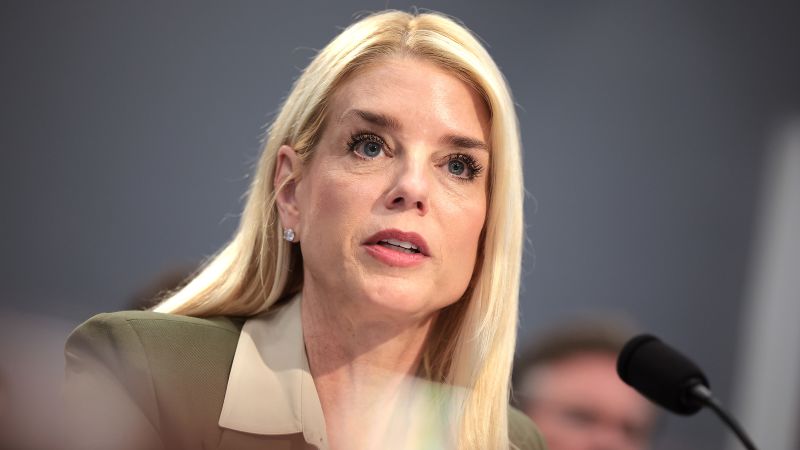The ongoing saga regarding Jeffrey Epstein and the revelations surrounding his associates has taken another turn with the Trump administration seemingly scaling back its promises to disclose significant information. For many supporters within the MAGA (Make America Great Again) community, the quest for definitive answers linking influential individuals to Epstein’s crimes has been driven by speculation and conjecture. They have long awaited evidence that could substantiate their theories about Epstein’s connections to the elite and the alleged nefarious activities he conducted, but this latest announcement may leave them disappointed.
At the center of this latest development is Attorney General Pam Bondi, who has been embroiled in controversy due to her handling of the Epstein case. The Justice Department, in a memo released on a Monday, has clearly stated that they found no evidence to support claims that Epstein was murdered or that he maintained a list of clients involved in criminal activities. Instead, the Justice Department has decided against releasing any new documentation related to the case. This information, first reported by Axios, reaffirmed the conclusions drawn by New York City’s medical examiner and echoed statements made during Trump’s first term by Attorney General Bill Barr, who had initially raised concerns but ultimately labeled Epstein’s demise a suicide.
For anyone following the details of the Epstein case, particularly investigative journalist Julie K. Brown of the Miami Herald, the findings revealed in the Justice Department’s memo might not come as a surprise. Brown has pointed out that various sources who have collaborated with the FBI for a long time have consistently reported that there is no ledger or list of clients that Epstein kept during his time running a sex trafficking operation.
The recent release of the memo, however, contradicts the ongoing speculation about the potential involvement of various powerful figures in Epstein’s exploitation of vulnerable individuals. Some conspiracy theories posited that Epstein had the means to blackmail noted individuals based on client lists he allegedly maintained. Such theories have become conspicuous narrative threads among certain political factions, with Republican lawmakers echoing this narrative and demanding transparency regarding the existence of a “client list.”
Bondi has played a significant role in stoking these flames with her rhetoric. During a Fox News interview on February 21, when pressed about the possible release of Epstein’s client list, she implied that such a list existed and that it was under her review, as directed by President Trump. This statement led many to believe that evidence did exist. However, in her subsequent engagements with various media outlets, she neither confirmed nor denied the existence of such a list, which only fueled further speculation.
Further complicating the narrative, Bondi made sensational assertions about the availability of “tens of thousands of videos” relating to Epstein with children and regarding child pornography. These claims, presented in stark terms on a publicly available recording, appeared contradictory when scrutinized by other officials, including FBI Director Kash Patel. Patel commented on the lack of such incriminating footage, reinforcing doubts regarding Bondi’s assertions.
The Justice Department’s memo does address the existence of videos but clarifies that they include over ten thousand images and clips involving illegal sexual activities. Importantly, it does not substantiate Bondi’s claims about the alleged quantity of videos or their direct involvement with Epstein. The memo has also suggested that the number of victims impacted by Epstein’s actions is significantly higher than previously stated by Bondi, with estimates reflecting that Epstein harmed over a thousand individuals, each with their own traumatic stories.
Overall, this situation paints a complex picture wherein expectations for transparency clash with the realities of what has been disclosed. The lack of evidence, the denial of theories related to client lists, and the potential numerical discrepancies regarding victims highlight the difficulties faced by the Justice Department in elucidating a case that continues to generate interest and concern within the public discourse. As the legal and moral ramifications of Epstein’s actions continue to unfold, individuals like Bondi find themselves at the intersection of political pressures and public expectations, often leading to mixed messages that only serve to deepen the intrigue surrounding this notorious figure and his wide-reaching network.











